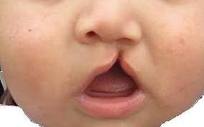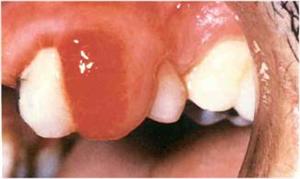If you’re pregnant and in need of a tooth extraction, hopefully this article can help clear some of your doubts.
Should I have my teeth extracted?
Generally elective procedures are postponed till after giving birth, but in case of emergencies, for example if the mother has a severe toothache or infection or complains of a facial swelling, it should be extracted immediately. If left untreated the infection may even threaten the life of the mother. Furthermore, toothache may be a constant source of distress to the mom, which is very unhealthy for both mother and child. However, gingivitis becomes aggravated in pregnancy and causes patient concern, so sometimes the tooth may not be the reason for the toothache; your dentist should first find out the source of discomfort.
When is the safest time to extract teeth?
- No procedures should be carried out during the 1st trimester (1st-3rd month) because this is the period of the complex development of the fetal organs; the most critical period is the 3rd-8th week, during differentiation. The safest course of action is to protect the mother from infections and avoid any drugs as far as possible. Usually women are not aware of their pregnancy for the 1st 1-2 months, therefore it is better to avoid prescribing any drugs to women of childbearing age.
- The fetus undergoes growth and maturation during the 2nd and 3rd trimester (7th-9th month), but it is not advised to have any treatment during the 3rd trimester because of the risk of premature birth. Also, at that stage, it is harder for the mother to move around and to lie down in a dental chair. The supine hypotension syndrome may result if the patient is laid flat.
- Usually your dentist will tell you that the best time is during the 2nd trimester (4th-6th month) of pregnancy. Nevertheless, more advanced procedures should be postponed until after the baby is born.
What are the safety precautions taken during extraction?
-
Anesthesia and sedation
You must tell your dentist if you are expecting. Your dentist will usually change the anesthetics used, i.e. novocaine/lidocaine without the usual epinephrine, which is basically adrenaline. Prilocaine is not used as it can cause methemoglobinemia, which is a blood disorder characterized by above normal level of methemoglobin in the blood. Conscious sedation and general anaesthesia are best avoided during pregnancy. Sedation with diazepam or midazolam are particular hazards. Nitrous oxide (“laughing gasâ€) can interfere with the mother’s vitamin B12 and folate metabolism.
-
Antibiotics
The antibiotic tetracyclineshould not be given as they are known to cause yellowing of the child’s teeth.
-
Drugs
Drugs are best avoided in pregnant women, as some are teratogenic (causes growth abnormalities in the unborn child, such as cleft lip and palate), such as thalidomide and some retinoids, although there are very few drugs that have been proved to be teratogenic. Aspirin and other NSAIDS are contraindicated in the third trimester as they cause fetal pulmonary hypertension, as well as delaying labour. In addition, aspirin causes a platelet defect and may induce abortion and is not given throughout pregnancy. Do consult your obstetrician as to the drugs that you can or cannot be taken.
-
X-ray
X-rays are also avoided, although if absolutely necessary, the use of a lead apron as protection should be sufficient.
Is it true that pregnancy leads to tooth loss?
You may have heard of the old wives’ tale that pregnancy inevitably leads to tooth loss. This is not true. However, pregnant women do have increased gingivitis.
Why do pregnant women have increased gingivitis?
There is increased level of sex hormones during pregnancy, namely oestrogen and progesterone. Progesterone is the one responsible for increased vascularity and permeability of gingival blood vessels. As a result, the gums may appear bright red, swollen and sensitive, and may even be spontaneous bleeding, increase in exudates and mobility. This is also known as “pregnancy gingivitisâ€. It may even result in pregnancy epulis, also known as pyogenic granuloma of pregnancy, which essentially is a soft swelling, deep red in color, and bleeds easily, which causes patient concern. This epulis may appear anytime during pregnancy but usually occurs after the 3rd month. It usually regresses partially or completely after parturition. These conditions are not imminent of pregnancy; rather, they are the aggravated response to plaque and other plaque-inducing factors because of the hormonal changes in the body. Thus, maintaining good dental hygiene throughout pregnancy can help reduce inflammation of the gums.
Prevention
The best thing to do is taking good care of your teeth through brushing and flossing and using mouthwash daily, to reduce infection and inflammation and the need for extraction. It is safe and recommended that you have your teeth professionally cleaned.

